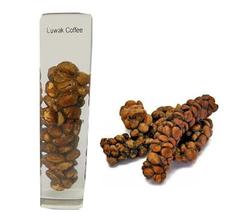Cuban Crystal Mountain Coffee Fine Coffee beans Cubita Cuban Crystal Mountain Coffee beans
Cubita is made entirely of coffee beans from Crystal Mountain in Cuba and has a high reputation in the coffee industry. Crystal Mountain is adjacent to the Blue Mountain Mountains of Jamaica, with similar climatic conditions, comparable to Jamaican Blue Mountain coffee beans. Adhere to the principle of improving coffee and only make individual coffee, the particles of coffee beans are strictly selected according to the standard of sieve 17-19, and the selected coffee beans have large particles and high maturity. All are picked by hand, and the water washing refining method is used to remove defective beans and other impurities to a large extent. Careful people will find that Cubita is indescribably different from other coffee. Cubita is like an elegant princess, with a sense of nobility, tenderness and grace. The balance is excellent, the bitter taste and the sour taste are well matched, and there will be a delicate, smooth, fresh and elegant feeling in the taste. Known as the unique Caribbean flavor coffee, it has become the designated coffee of the Cuban embassy. Cubita coffee is the same as love, with the right balance, it will suit our own taste. This cup of coffee: infiltrated, a hazy love, a persistent waiting for a touch of missing, and that happy helplessness.
In Cuba, most of the coffee beans are picked by hand. Coffee beans are picked about every half a month during the ripening period. During or after picking, coffee beans are classified and those immature and bad beans are removed to ensure the quality of the coffee. Cubans usually treat coffee beans in two ways: 1, sun exposure and water washing. Tanning is the simplest, cheapest and most traditional way to treat coffee, which is to let the coffee fruit dry in the sun but not ferment. The general drying time is about four weeks. 2. The law of washing makes the aroma of fruit more into the coffee beans, thus adding a kind of coarse fruit aroma to the coffee. Cubita combines all the advantages of Cuban coffee.

Important Notice :
前街咖啡 FrontStreet Coffee has moved to new addredd:
FrontStreet Coffee Address: 315,Donghua East Road,GuangZhou
Tel:020 38364473
- Prev

Civet coffee boutique coffee beans Indonesian coconut cat Kopi Luwak
Kopi Luwak is produced by the feces of Indonesian coconut cats (a kind of civet) as raw materials, so it is called Kopi Luwak. This kind of animal mainly feeds on coffee beans. After completing fermentation in the coconut cat's stomach, it destroys proteins, produces short peptides and more free amino acids, reduces the bitterness of coffee, and then excretes feces as the main raw material. Because coffee beans cannot be digested, they will be
- Next

Boutique coffee beans Brazilian coffee the latest introduction to low acidity, moderately roasted coffee beans
Brazilian coffee generally refers to coffee produced in Brazil. There is a wide variety of Brazilian coffee, the vast majority of which are unwashed and sun-dried, classified according to the name of the state of origin and the port of transport. Brazil has 21 states and 17 states produce coffee, but four of them produce the largest, accounting for 98% of the country's total output. Brazilian coffee has a low sour taste, which goes well with coffee.
Related
- Detailed explanation of Jadeite planting Land in Panamanian Jadeite Manor introduction to the grading system of Jadeite competitive bidding, Red bid, Green bid and Rose Summer
- Story of Coffee planting in Brenka region of Costa Rica Stonehenge Manor anaerobic heavy honey treatment of flavor mouth
- What's on the barrel of Blue Mountain Coffee beans?
- Can American coffee also pull flowers? How to use hot American style to pull out a good-looking pattern?
- Can you make a cold extract with coffee beans? What is the right proportion for cold-extracted coffee formula?
- Indonesian PWN Gold Mandrine Coffee Origin Features Flavor How to Chong? Mandolin coffee is American.
- A brief introduction to the flavor characteristics of Brazilian yellow bourbon coffee beans
- What is the effect of different water quality on the flavor of cold-extracted coffee? What kind of water is best for brewing coffee?
- Why do you think of Rose Summer whenever you mention Panamanian coffee?
- Introduction to the characteristics of authentic blue mountain coffee bean producing areas? What is the CIB Coffee Authority in Jamaica?

